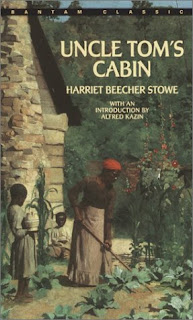Parallels of Injustice
 From fund-raising to campus outreach, I have recently spent quite a few hours on the late autumn roads between the land of the Bucks and that of the Hoosiers. In order to take advantage of the time, I listened to a great American classic recorded onto DVD: Uncle Tom's Cabin.
From fund-raising to campus outreach, I have recently spent quite a few hours on the late autumn roads between the land of the Bucks and that of the Hoosiers. In order to take advantage of the time, I listened to a great American classic recorded onto DVD: Uncle Tom's Cabin.This masterpiece by Harriet Beecher Stowe holds a privileged position in the American literary hall of fame---for it portrayed the humanness of the enslaved black man to a culture which was in great need of an education.
Listening to the characters argue over the institution of slavery, I was struck once again by the glaring parallels among the great injustices which continue to plague our world.
Take, for instance, the following challenge issued in Stowe's oeuvre by one cynic to a character who is decidedly against human slavery: "But what would happen if we were to set all of these slaves free? They are better off this way. They can't fend for themselves."
Today we recognize such an argument as immediately preposterous. We do not condone a moral evil because of the difficulty of acclimating those currently oppressed to the normal world. We do not advocate for enslaving those individuals who currently "can't fend for themselves."
And yet, how often is the pro-life position written off with assertions like, "But what would happen to all of these babies if they were born?" The abortion choice advocate declares that it is better to abort than to have all of these babies unleashed upon the world.
Try using that logic with the slaves working by the sweat of their brow under the tyrannical reign of an early American slave-owner.
Another example from Uncle Tom's Cabin: After one character tries to argue for the humanity of the black man by comparing him to a white man, another character responds, "But you can't reason from us to them!" Though the differences between a free white man and an enslaved black man are only differences of degree (such as degree of dependency on others---one is more dependent than the other, but neither is truly independent), they are painted as differences in kind.
Compare this to conversations we have with students on college campuses. I may explain what it means to be human, and countless students respond, "But you're talking about we born people. You can't compare us to a zygote!"
My question: what's the difference? All of the differences between any zygote and both of the two people who will read this blog post are merely differences of degree---not differences in kind.
But, prejudice causes us to reinterpret differences to fit our personal agenda. It was the way of the white man who sought to oppress the blacks. It is also the way of those who would continue to see children killed because of their age.

Comments
Post a Comment